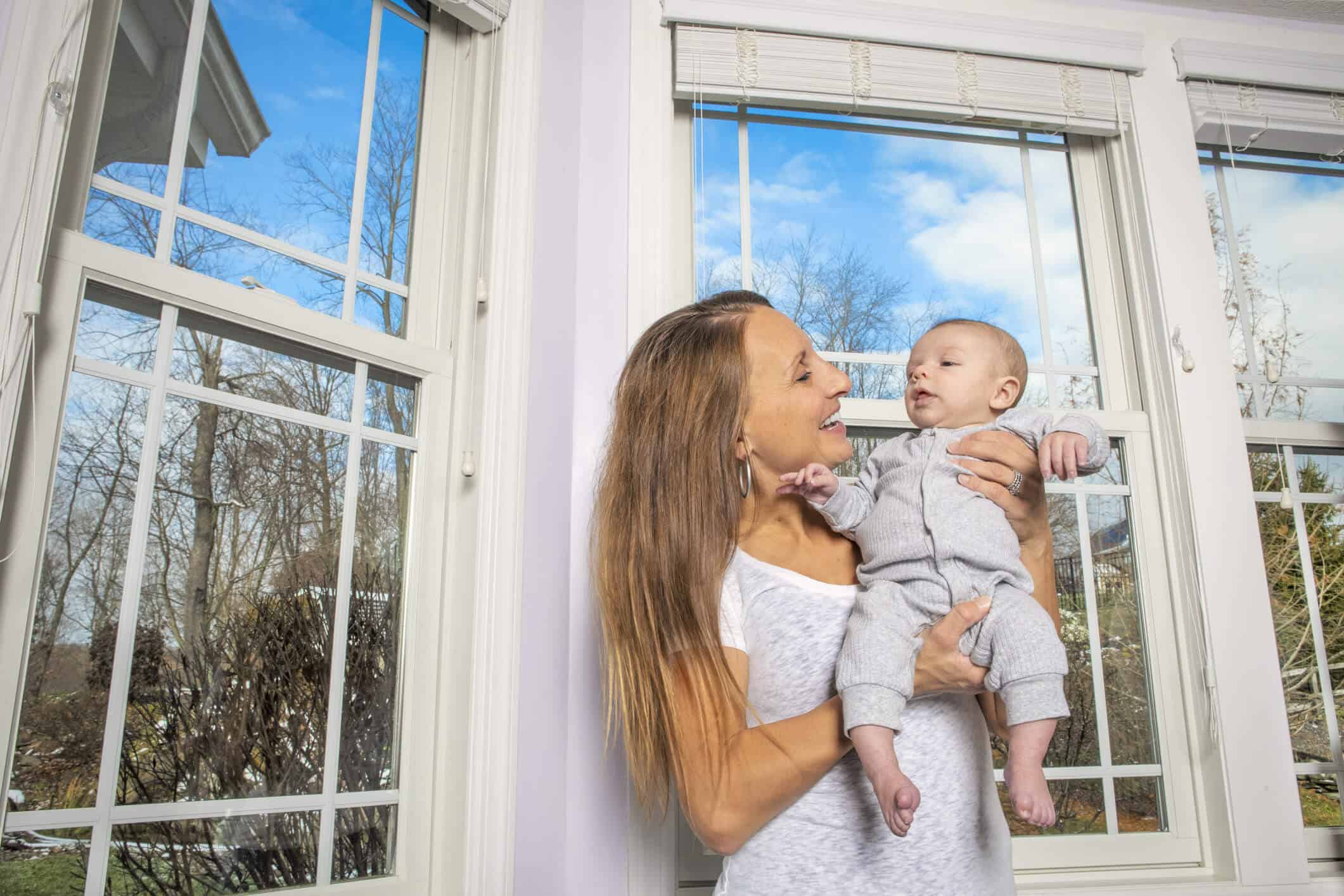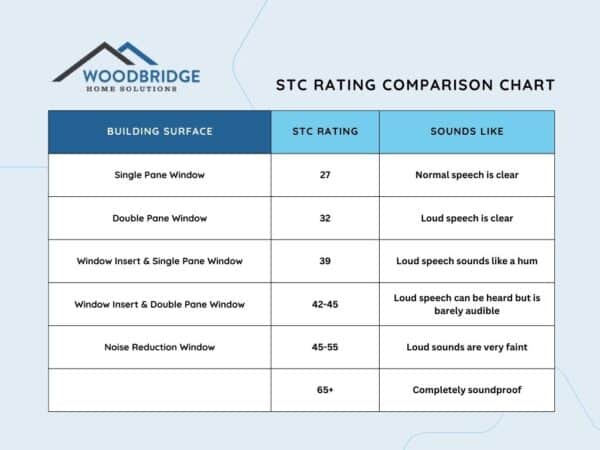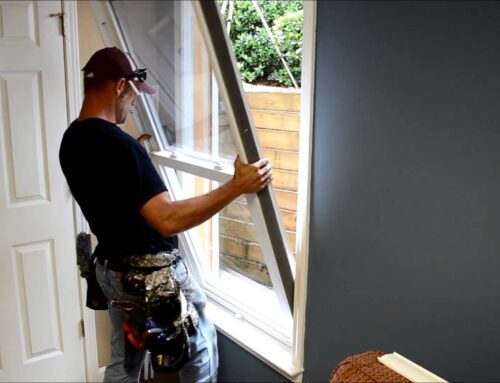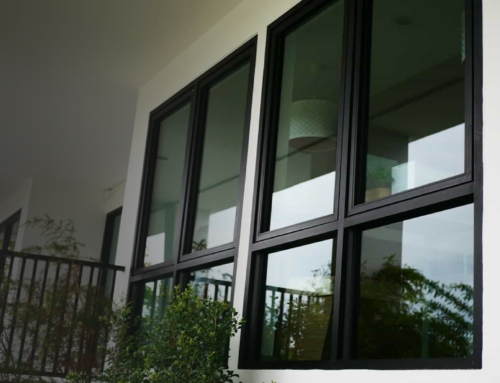
You may be intrigued by the idea of noise-reduction windows if you have loud neighbors or are a light sleeper. (Please note that no windows block all sound – so “soundproof windows” don’t exist!) But are noise reduction windows the best idea for you? You might be surprised by our answer.
Contents
Contents
Characteristics of Noise Reduction Windows
Windows are rated on the sound transmission class (STC) scale.
If you are replacing windows to reduce highway noise (or traffic noise), you’ll want to look for noise-reducing windows with higher STC ratings.
Single-pane windows have an average STC rating of 27; some double-pane windows and triple-pane windows have STC ratings that can go up to 32.
To achieve these higher window ratings, a manufacturer uses thicker glass, increases the air space between the panes, and uses laminated glass. These “soundproof windows” have STC ratings between 45 and 55, which means they can block as much as 95% of all outdoor noises.
As good as this may sound, it’s important to note that noise reduction windows come with a hefty price tag. Most homeowners learn to live with waking up to the sounds of birds chirping – or dealing with occasional thunder or sirens.
However, if noise pollution severely affects your quality of life, you may decide to block noise from coming into your home by replacing your existing windows with expensive windows designed to block sound.
How to Soundproof Your Existing Window
Even if you aren’t ready to spend thousands to make your windows soundproof, there are things to your existing window to dampen the noise that is coming into your home.
Add window inserts to your existing window. Window inserts add up to four inches of air between your principal and interior windows. Some window insert manufacturers claim their product can reach an STC rating of 42.
Add insulation in the interior and exterior walls. Most homes don’t have interior wall insulation, but some homeowners say there’s a noticeable difference in noise level when insulating inside walls.
Hang sound-dampening curtains. Yes, your window treatments can block sound (and make your home more energy efficient). Sound-dampening curtains and honeycomb cell shades can help reduce noise in your bedroom.
Have a professional install replacement windows and doors. Even if you don’t spring for noise-reducing windows, you can reduce the outside noise from coming in by making sure professionals expertly install your window frames and doors. Window frame gaps and leaky doors do little to block sound waves.
Reduce Home Noise With Soundproof Windows
Consider buying windows and doors for increased energy efficiency, maximum security, and soundproofing. Contact Woodbridge Home Solutions to learn more. In fact, you may not even need to install double-cell shades after your new windows are installed.
Woodbridge Home Solutions will seal window gaps (and door gaps) and install a triple-pane energy-efficient window. You’ll love the look and feel of your new windows!
Woodbridge provides siding, doors, and replacement windows in Wichita, Dallas, Amarillo, Lubbock, and surrounding locations in Kansas and Texas. Schedule a free consultation today!
Key Takeaways About Soundproofing Your Home
- Windows are rated on the sound transmission class (STC) scale.
- There are other techniques for soundproofing windows, including insulating internal walls and hanging thick window treatments.
- Professional installation of quality windows goes a long way in keeping outside noises from entering your space.








